The Swim Leg Reconsidered
In past Ironman attempts I avoided the pool at all costs. This time around though, in the lead up to Ironman Texas on April 22nd, the pool is where I have focused the most use of my allotted training time, nine hours per week, to make the biggest splash in terms of fitness gains.
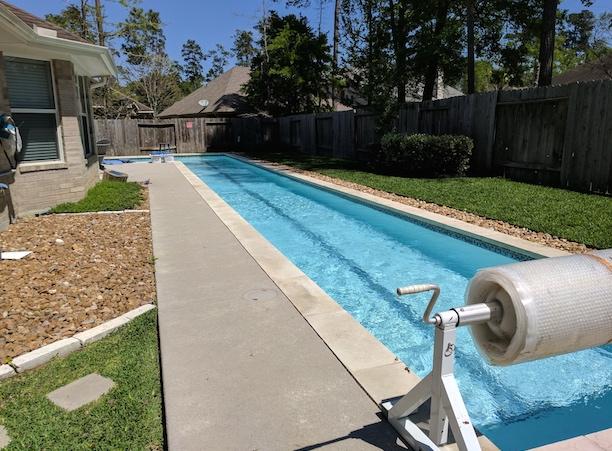
It seems a bit counterintuitive to spend so much time in the water as the swim leg accounts for only a very small portion, around 10% or so, of the total time spent completing an Ironman. But for the sake of this experiment, my rationale for beefing up on the swim is as follows:
* Best of the three sports to boost overall fitness and strength relative to training time spent.
* The fitter I get in the water before race day, the less energy I hope to spend in the swim on race day, allowing me to start the bike as ‘fresh’ as possible.
* Lesser likelihood of developing any kind of significant lower leg injuries in the pool during training in comparison to cycling or running so greater likelihood of arriving to the start line healthy and uninjured.
* Will have a better looking tan, or at least less obnoxious tan lines.
Only the last point is likely unobtainable.
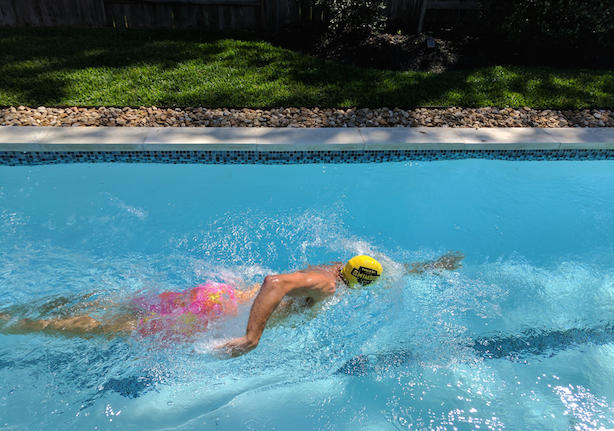
I started having a greater appreciation for swimming in 2015 when a back injury, and subsequent surgery, put me on the sidelines for a few months. The neurosurgeon who performed the discectomy, Dr. Geoffrey Zubay, an endurance athlete himself having completed most editions of Ironman Texas, recommended getting in the pool as often as possible after the initial healing. He covered his bases and cautioned to avoid flip turns the first few weeks but suggested slowly incorporating those back into workouts too. After a solid few weeks with little more activity then walking the dog around the block, the pool never looked so good.
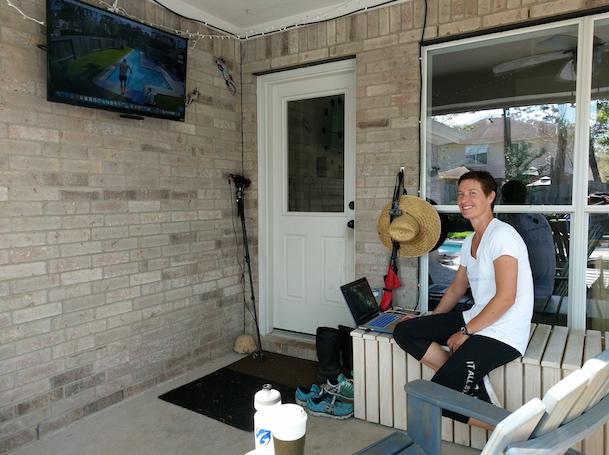
The biggest breakthrough in my swimming came in early 2016, when Tim Reed recommended I visit Gemma Hollis, a Swim Smooth certified coach, who had recently moved to The Woodlands from Singapore. Hollis owns and operates Push Glide Kick which provides private swim instruction and video analysis. I figured since I was spending a sizable chunk of time in the pool, I might as well try and ensure I was swimming properly.
I was blown away by the simple yet effective advice Hollis provided through verbal pointers and video analysis of my stroke. I was able to keep those video files and refer back to them when I felt bad habits returning. For a small monthly fee, I was also able to access a library of Swim Smooth’s workout sessions, training plans and technique and drill videos, including videos dissecting the strokes of elite swimmers from pool, open water and triathlon. Jodie Cunnama, Harry Whiltshire, Lucy Charles and Richard Varga to name a few. All have taken their share of swim primes over the years!
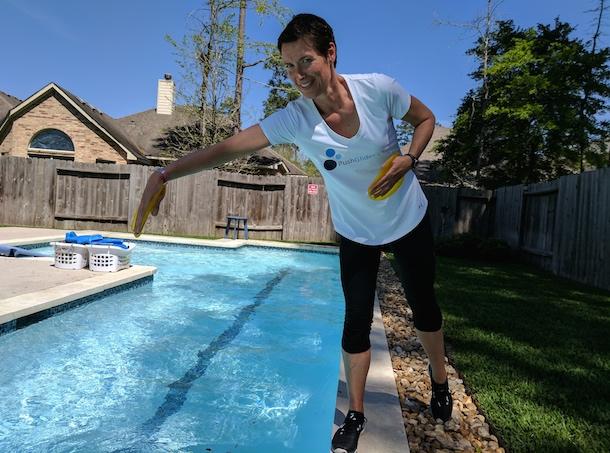
The most helpful advice I received from Hollis was not to try and make my stroke “look pretty” but focus instead on a high stroke turnover in an effort to eliminate “dead spots” in my stroke. When she suggested to think of swim stroke rate in the same way as I would focus on cycling and running cadence, it clicked. My enjoyment in the pool increased, aided by my faithful training partner, the Finis Tempo Trainer Pro, which has improved my pacing and stroke rate turnover.
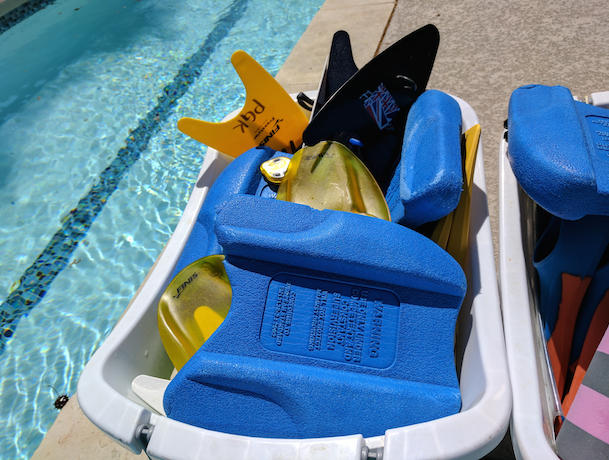
I have continued working with Hollis, occasionally hopping into one of her local master’s workouts and recently got an updated video analysis to stay on top of stroke technique. Having plateaued a bit in the pool recently, I booked a session with her this past week and came out of it reinvigorated with a few new things to work on this upcoming month:
* Hand position upon entry
* Forearm and elbow position for a more effective catch
* Faster arm turnover.
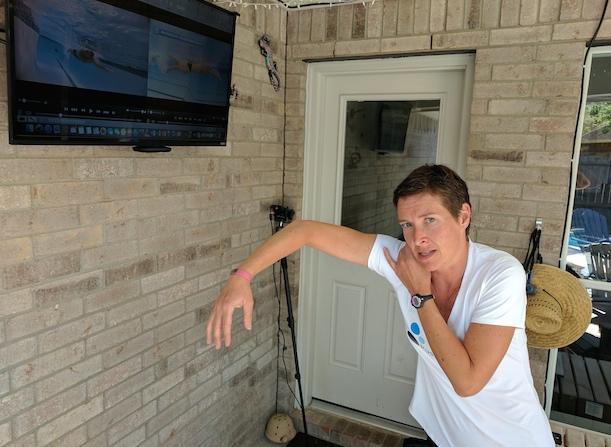
Hollis works with swimmers of all abilities and some athletes have made borderline miraculous transformations in the water, and in at least one case, overnight! Last year she was visited by an athlete who in three previous attempts at Ironman Texas had not made the swim cut off time. A few weeks earlier he had been pulled from the race after not making the cutoff for the swim at 70.3 Texas in Galveston. Now in desperation, on the evening before Ironman Texas race day, he visited Hollis at the urging of his triathlon coach. She spent less than an hour with him and offered up a few suggestions for him to focus on the following morning. He completed the swim with nearly 40 minutes to spare before the cutoff!
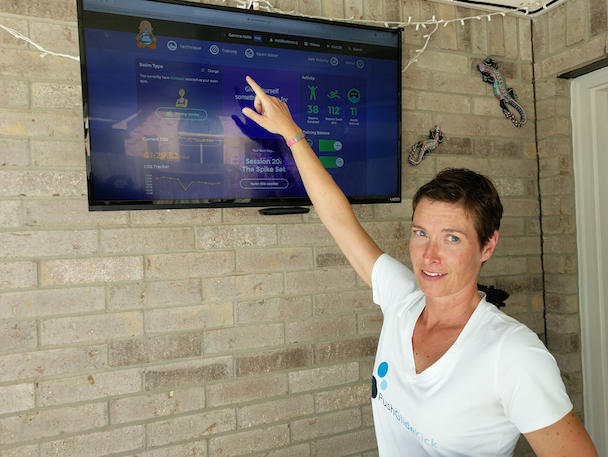
Even pro athletes who come into town to train during the week leading in to the race book private lessons and elicit her for video stroke analysis, including a few who finished on the podium last year.
With Hollis overseeing my swim training, the only question still up in the air at this point, and always a hot topic with Slowtwitchers surrounding this event, is whether race day will be a wetsuit or non-wetsuit swim in whimsical Lake Woodlands? Your guess is as good as mine!
**Below is a snippet of the video analysis from last week. Hollis first captured video during a 400 yard swim then recorded a voice over as she broke down stroke corrections to work on. She also dropped clips into the timeline of elite athletes who execute proper technique in order to provide a visual to strive for.
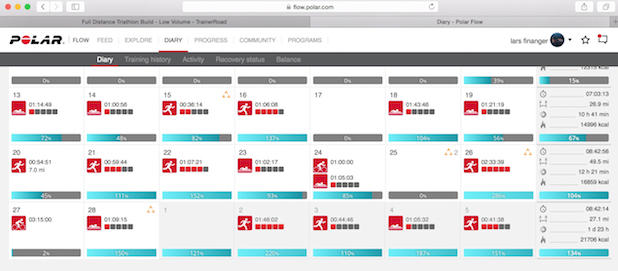
I have been using a Polar V800 during training sessions and below is the breakdown automatically synced and formatted into their Polar Flow application for both February…
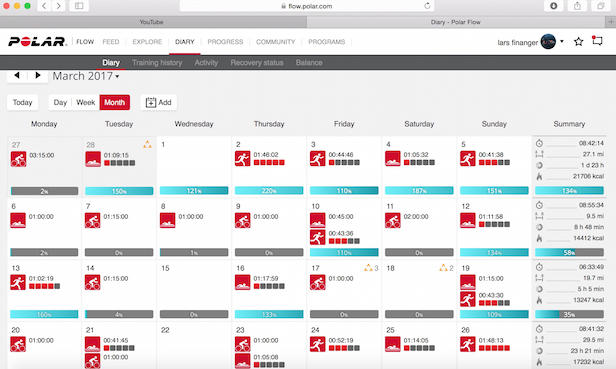
and March workouts.


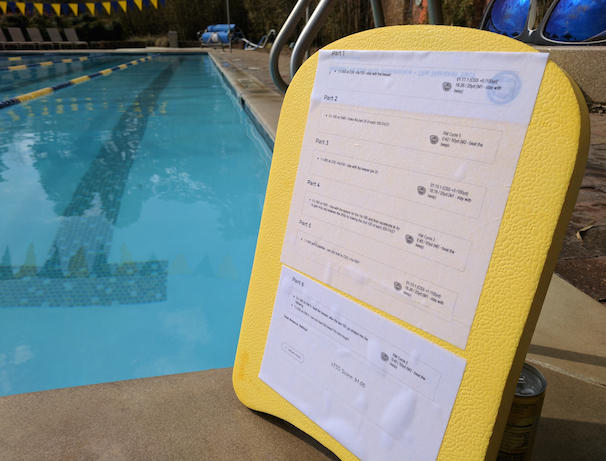
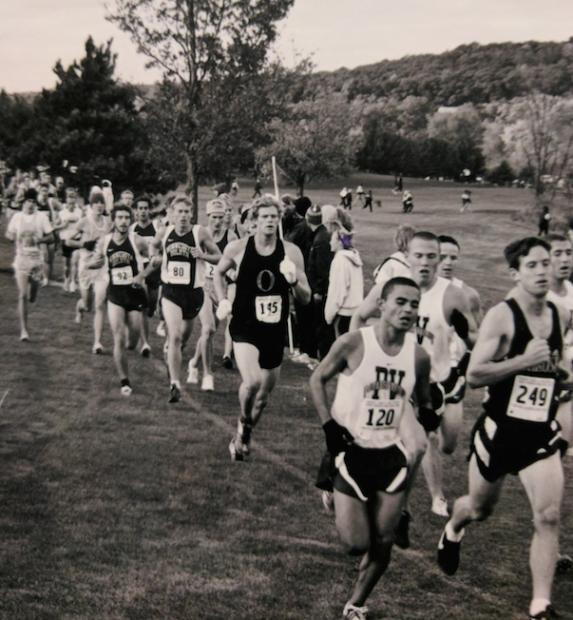
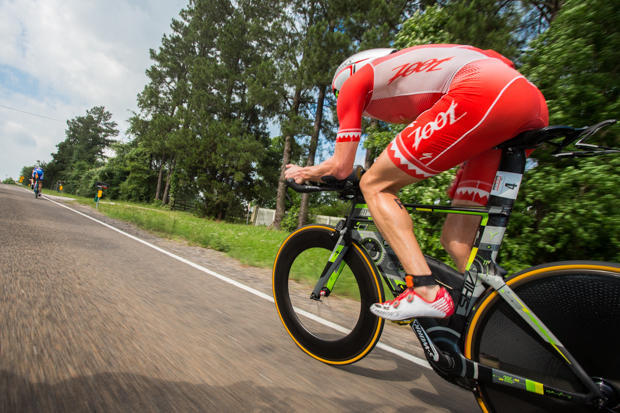
Start the discussion at forum.slowtwitch.com